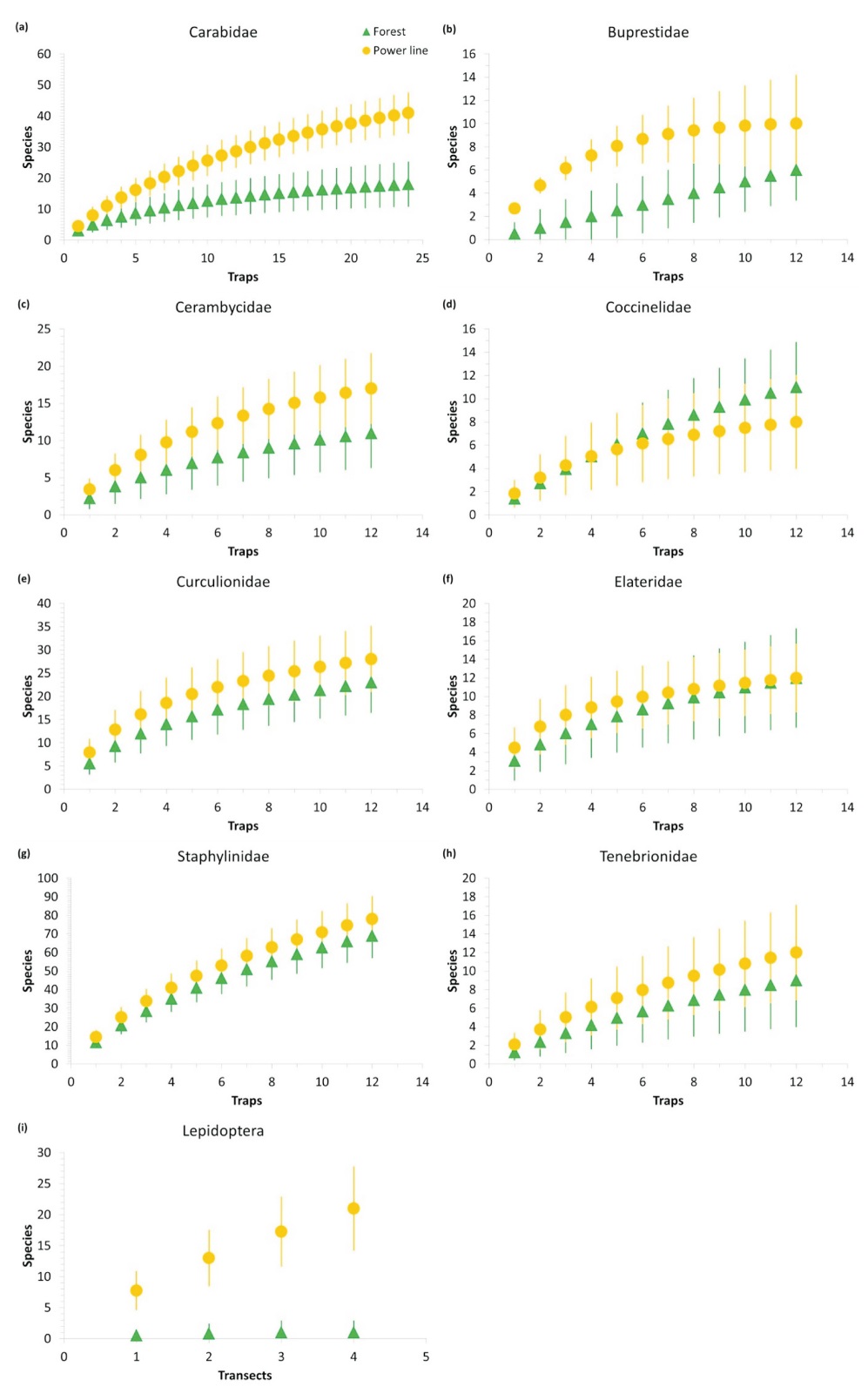Powerlines Enhance Insect Diversity
The study focused on the importance of forest-free areas
under power lines for the diversity of several groups of insects in
Central Europe. This type of areas are particularly important in the
light of the observed disappearance of open habitats in forests on the
one hand, and the increase of human impact on the forest on the other.
The observed decline of biodiversity in forests can be compensated in
part due to the creation and proper maintenance of open areas under
power lines. The presented study is one of the very few in this field
of knowledge and should be of interest to various groups of readers, i.e., forest managers, scientists, environmental organizations, society.





Differences in the response of selected insect groups to power
lines and forests in investigated study sites in Poland: (a) ground
beetles (Carabidae), (b) jewel beetles (Buprestidae), (c) long-horn
beetles (Cerambycidae), (d) lady-bird beetles (Coccinellidae), (e)
weevils and bark beetles (Curculionidae), (f) click beetles
(Elateridae), (g) rove beetles (Staphylinidae), (h) darkling beetles
(Tenebrionidae), (i) butterflies (Lepidoptera). Circles and triangles
indicate results for power lines and forest interior, respectively.
Whiskers represent 95% confidence intervals.
Read the full article, published by Zoological
Studies, here
Follow Zoological Studies on
Twitter @ZooStudies
and Facebook
